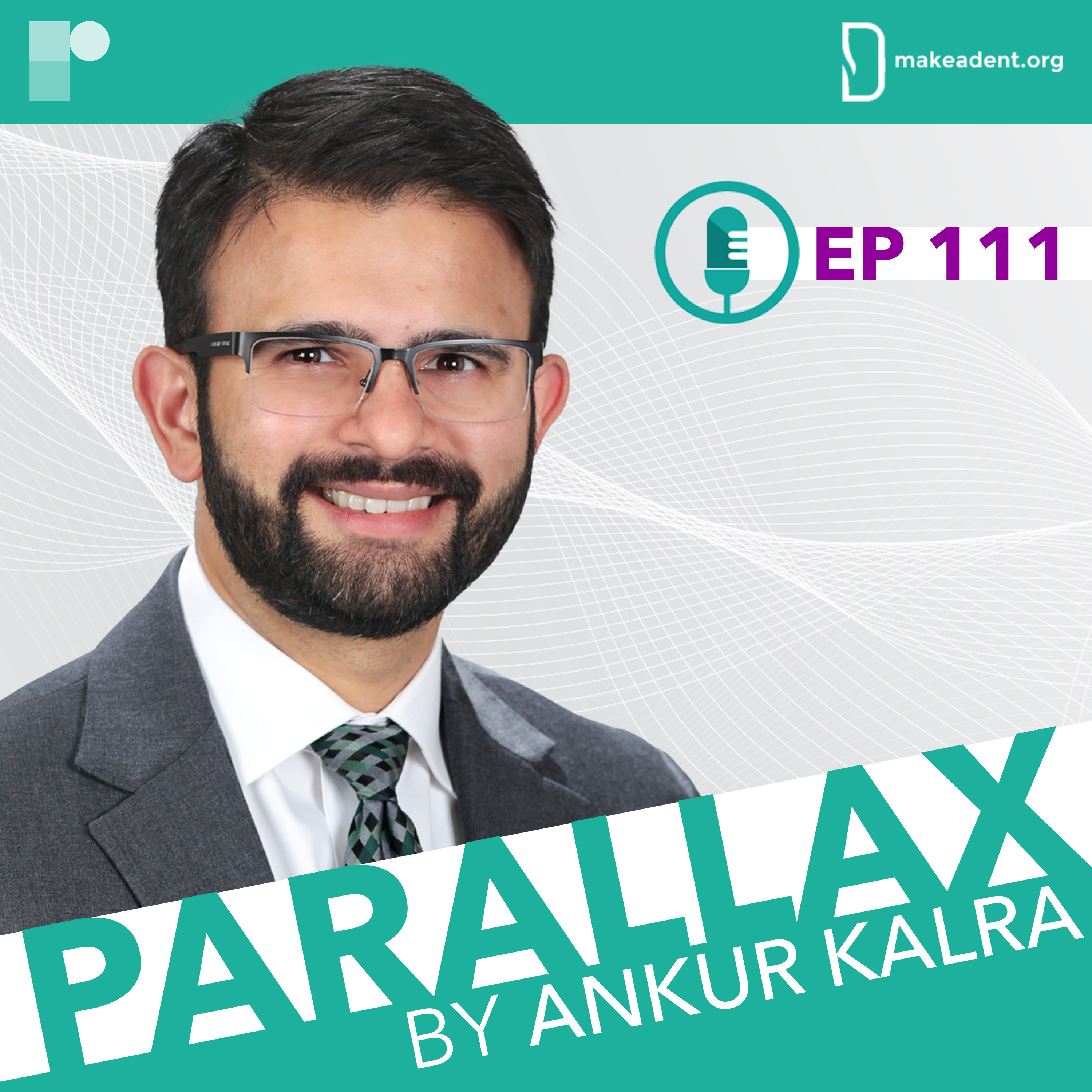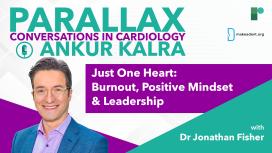
Dr Ankur Kalra’s guest this week is Dr Saraschandra Vallabhajosyula, Interventional and Critical Care Cardiologist, Assistant Professor of Medicine at the Warren Alpert Medical School of Brown University and the Director of the Cardiac Intensive Care Unit at Rhode Island Hospital, the Miriam Hospital and Lifespan Cardiovascular Institute. In this episode of Parallax, they delve into the latest insights from ACC.24 through the lens of five pivotal late-breaking trials.
Dr Vallabhajosyula offers a deep dive into the nuances of each study. Together, Dr Kalra and Dr Vallabhajosyula distil the complexities of these trials into key messages for practice, grounded in their own clinical experiences.
In the spotlight are five key trials:
1. DanGer Shock: Microaxial Flow Pump or Standard Care in Infarct-Related Cardiogenic Shock
2. RELIEVE-HF: Safety and effectiveness of the V-Wave® Ventura® Interatrial Shunt for the treatment of heart failure (HF)
3. PREVENT: Preventive PCI or medical therapy alone for vulnerable atherosclerotic coronary plaque
4. REDUCE AMI: Decreased usage of beta-blockers after acute myocardial infarction
5. ORBITA-COSMIC: Coronary sinus reducer for the treatment of refractory angina
Dr Kalra and Dr Vallabhajosyula dissect the practical implications of these trials, answering pressing questions and addressing emerging dilemmas. What are the key takeaways from ACC.24? How do these findings shape contemporary clinical practice?
Questions and comments can be sent to “podcast@radcliffe-group.com” and may be answered by Ankur in the next episode.
Guest: @SarasVallabhMD Host: @AnkurKalraMD and produced by: @RadcliffeCARDIO



The charity organisation, Women as One is an agent for women and men to be part of medicine that is built on talent, rather than a privilege. Roxana and Ankur discuss the role of mentorship and family-friendly work environment in mending the broken house of cardiology. Roxana talks about the practical tools that are available for women to take the next steps in their career and achieve their goals.

Dr Kalra asks Dr Mauri about early influences and her traineeship with legendary interventionalists, the late Donald Baim and Richard Kuntz. Dr Mauri talks openly about her decision-making process and the importance of selecting your priorities and committing to them. Ankur asks Laura about her decision to go into industry. Laura shares her thoughts on medical innovations and meeting urgent needs with unique perspectives.
What is Dr Mauri’s advice for a young cardiologist? How did she balance research and patient care? What are the questions that helped her decision making? How does Dr Mauri think about innovations in medicine?

Brigham and Women’s Hospital’s Health Equity Committee decided to confront the status quo by asking: How is racism on a structural level present within our walls?
Ankur Kalra’s guests Michelle Morse (Founding Co-Director of EqualHealth and Assistant Professor at Harvard Medical School) and Lauren Eberly (Cardiology Fellow at the University of Pennsylvania) are co-authors of a retrospective study that demonstrated what had previously only been observed: That black or brown heart failure patients ended up in general medicine rather than specialised cardiology services. Following the publication of the study in November 2019, the Health Equity Committee started to roll out anti-racism trainings and to work on objective admission guidelines to mitigate biased behaviours.
Aarti Bhatt (Assistant Professor of Medicine at the University of Minnesota), member of the Minnesota chapter of Campaign Against Racism, talks about their initiative to support projects that have a positive impact on local communities on a global scale.

In this week’s Parallax, Dr Kanaa’N, the director of the program, and Dr Lahorra, chairman of the Heart, Vascular & Thoracic Department of Akron General introduce the listeners to the foundations of their program and the paradigm shift brought by TAVR.

Ankur Kalra asks Grant W Reed, Director of the Cleveland Clinic’s STEMI program, to reflect on the actions they took and the challenges of delaying cardiovascular procedures in the wake of the coronavirus pandemic. Dr Reed offers insight on the factors that influenced the Cleveland Clinic’s STEMI policy for COVID-19. Ankur and Grant discuss the triage considerations for patients with structural heart disease and the steps the clinic took to protect its healthcare workers.








